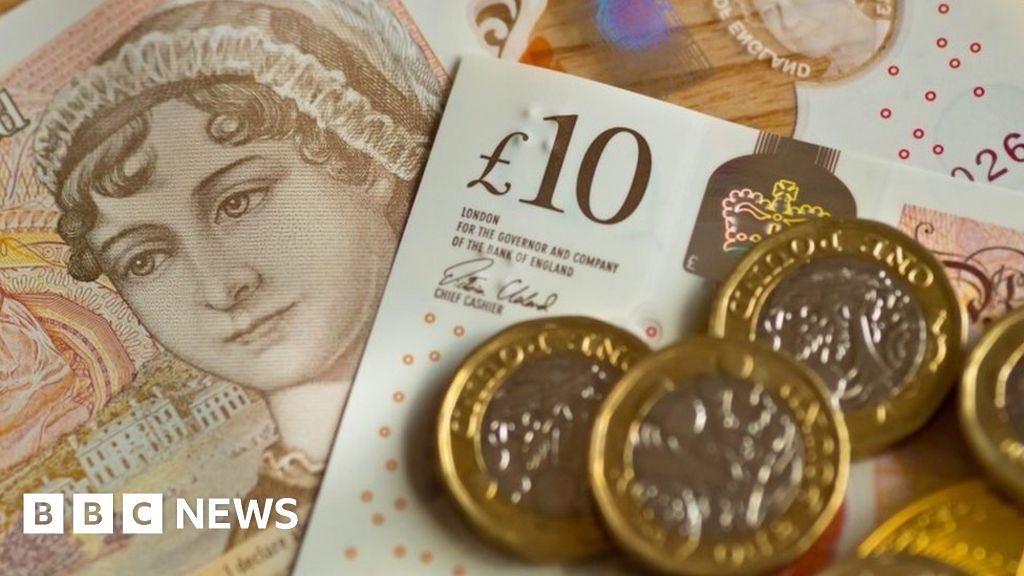
Measures being taken to tackle the impact of coronavirus are beginning to have an impact on Northern Ireland's economy.
From travel and tourism, to retail and cross-border impact, our communities are taking a big hit from the virus.
Businesses are in need of support and many are requesting a rates waiver similar to that promised in England.
BBC News NI's economics and business editor John Campbell looks at the affected sectors.
Travel and tourism
Across the world, tourism is facing a sharp downturn. Planes are grounded, cities are locked down and people are being urged not to socialise.
Northern Ireland is feeling some of those effects.
Early in the crisis there were some cancellations of Chinese coach parties, a very small part of the market in Northern Ireland.
Then, almost two weeks ago, the regional airline Flybe collapsed, with the impacts of coronavirus being cited as the last straw for the struggling company.
This has had a disproportionate effect on Northern Ireland - the airline accounted for almost 80% of Belfast City Airport's services.
So, at a stroke, air connectivity was lost to many GB cities, making it harder for visitors to get here.
This week 95 Swissport ground staff employed at the airport were told they face redundancy.
Hotels are also beginning to feel the effects.
Ireland's biggest hotel chain, which operates from four sites in Northern Ireland, said it had seen a significant rise in cancellations.
Dalata also said there has been a reduction in new bookings over the last two weeks.
Janice Gault, the chief executive of the NI Hotel Federation, said: "We are at the frontline of this."
She points out that this time of year is relatively quiet for tourism in Northern Ireland with a bigger concern being whether the crisis extends into the peak months.
Conferences and events
Conferences are an important subsector of tourism and have been a driver of visitor numbers to Belfast in recent years.
They help boost room occupancy during the week, with the leisure market dominating at the weekend.
The Royal Economic Society has cancelled its conference, which was due to take place in Belfast in April.
It would have brought 600 delegates to the city, so there is a knock-on effect with lost trade for hotels and restaurants.
- Coronavirus: Rates relief 'would cost £200m', says Murphy
- Private sector in Northern Ireland 'continuing to contract'
Other events have been postponed: IFEX 2020, a catering industry event which was to due to held at Titanic Exhibition Centre, has been moved to November.
The organisers said it was the right thing to do now "rather than wait for the government to officially halt mass gatherings and events".
The Irish League of Credit Unions has cancelled its AGM which was due to be held at Belfast's International Conference Centre in April.
The Belfast Film Festival has also been postponed and St Patrick's Day Festivals have been cancelled.
Retail
The headlines have been grabbed by panic buying of items including toilet paper, pasta and flour.
But for convenience retailers in Belfast city centre, who rely on lunchtime trade, there is growing concern about the impact of people working from home.
Donagh McGoveran operates four Centra shops in the city - one occupies a ground floor unit of the River House office block.
Many of the workers above that shop are employed by IT companies and are being encouraged to work remotely.
"We're already seeing that," said Mr McGoveran.
"As it progresses and there is more of a lockdown, we could get to a scenario where the turnover of the store drops to such a level it won't be viable to stay open."
Footfall in the city centre could begin to drop sharply next week.
Ulster Bank, which has a large office in the city's commercial heart, has asked staff to begin working from home if it is practical to do so.
The bank says the aim is to "greatly reduce" the number of people in office locations.
The cross-border impact
The Irish government has taken more drastic measures than those so far implemented in Northern Ireland.
All schools and colleges in the Republic of Ireland will be closed until at least the end of March.
That will have an impact on big employers on the northern side of the border who draw many of their workers from the Republic.
Their employees are scrambling for childcare arrangements and it seems certain that some of them will have to take time off work.
O'Neills International sportswear is the biggest private sector employer in Strabane, County Tyrone. Half its workforce come from across the border in County Donegal.
The firm's managing director, Kieran Kennedy, said: "It's going to have huge implications for a company like ours.
"For all the parents here, their children won't be able to go to school, so will they be able to come to their work?"
The big picture
Northern Ireland's economy was already slowing before this crisis.
Unemployment is at record low levels but it's clear that growth was slowing or had even stalled over the last year.
Survey data, such as the Ulster Bank PMI, suggests that parts of the private sector are already contracting.
Additionally, Northern Ireland has not made up all the output that was lost in the last recession.
Attention will now shift to Stormont's budget, which will be delivered before the end of the month.
Businesses are crying out for support, such as a one-year rates waiver similar to that promised to small businesses in England.
"to have an impact" - Google News
March 14, 2020 at 07:41PM
https://ift.tt/3aYFCs5
Coronavirus: How the NI economy is impacted by new measures - BBC News
"to have an impact" - Google News
https://ift.tt/2OtZUAR
Shoes Man Tutorial
Pos News Update
Meme Update
Korean Entertainment News
Japan News Update
Bagikan Berita Ini















0 Response to "Coronavirus: How the NI economy is impacted by new measures - BBC News"
Post a Comment